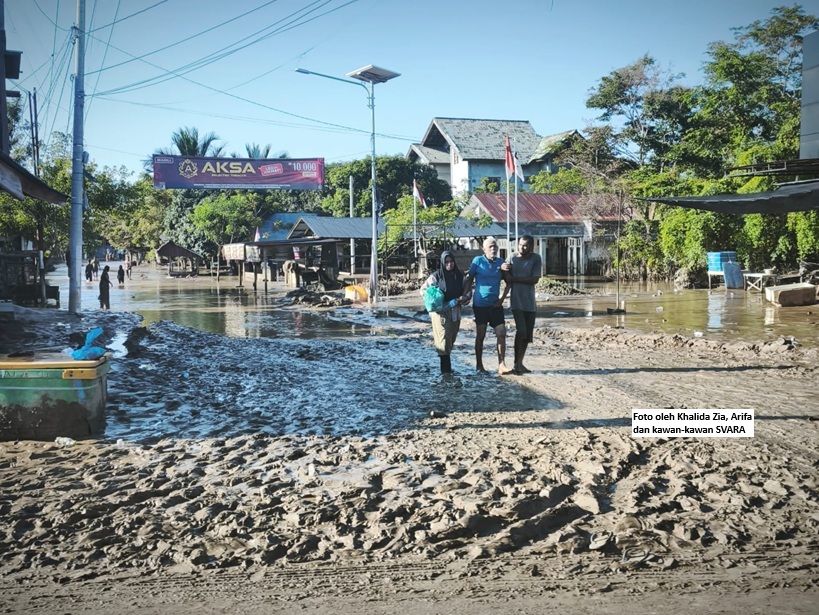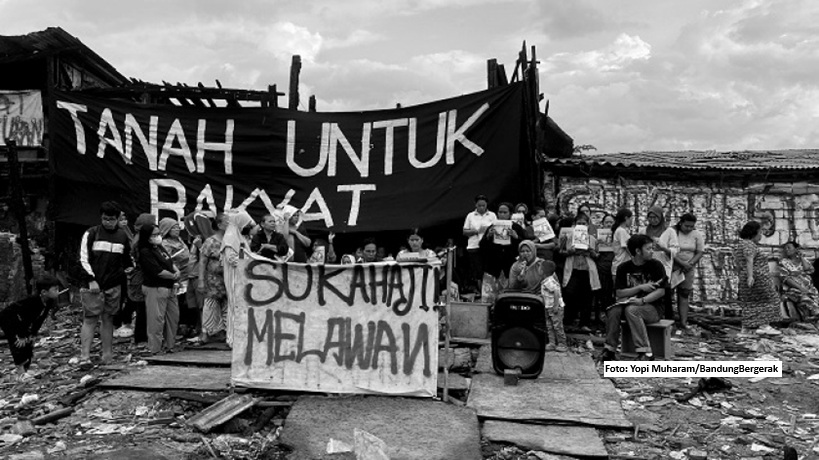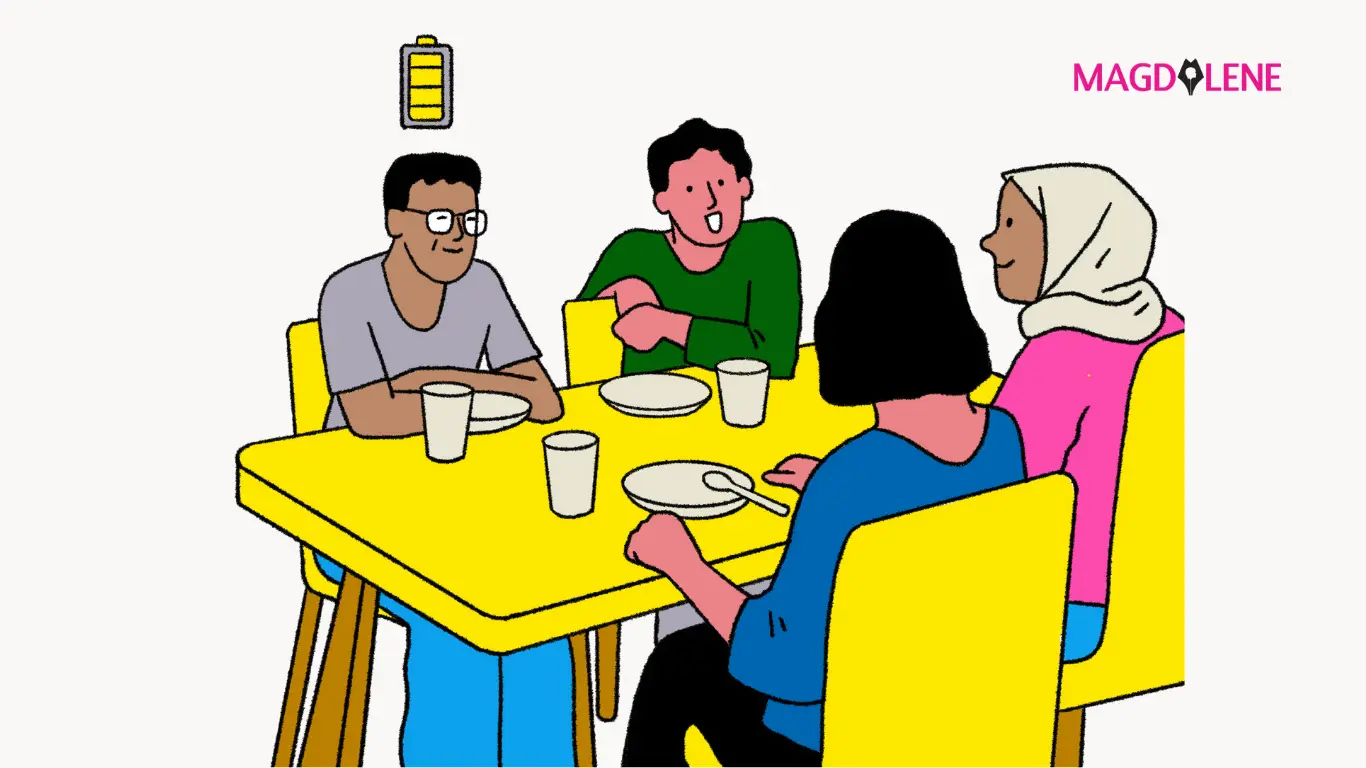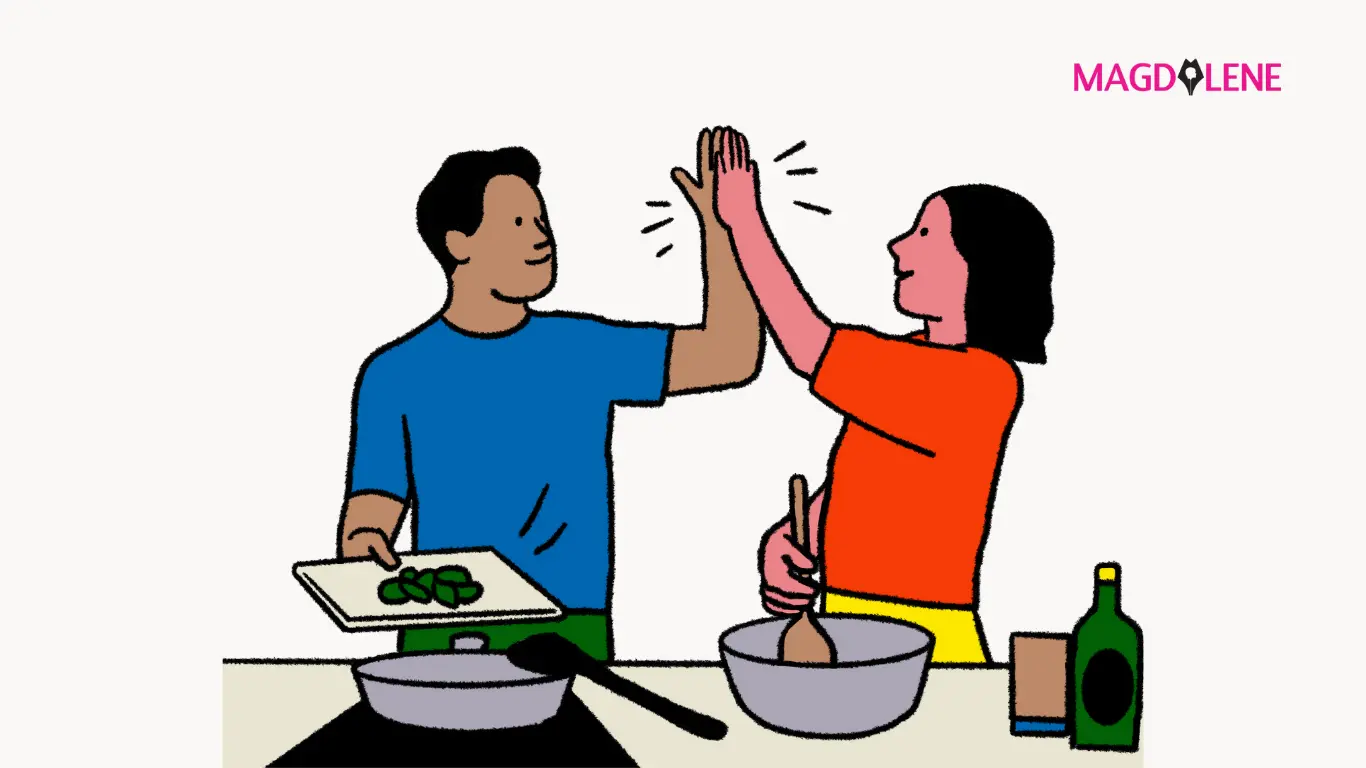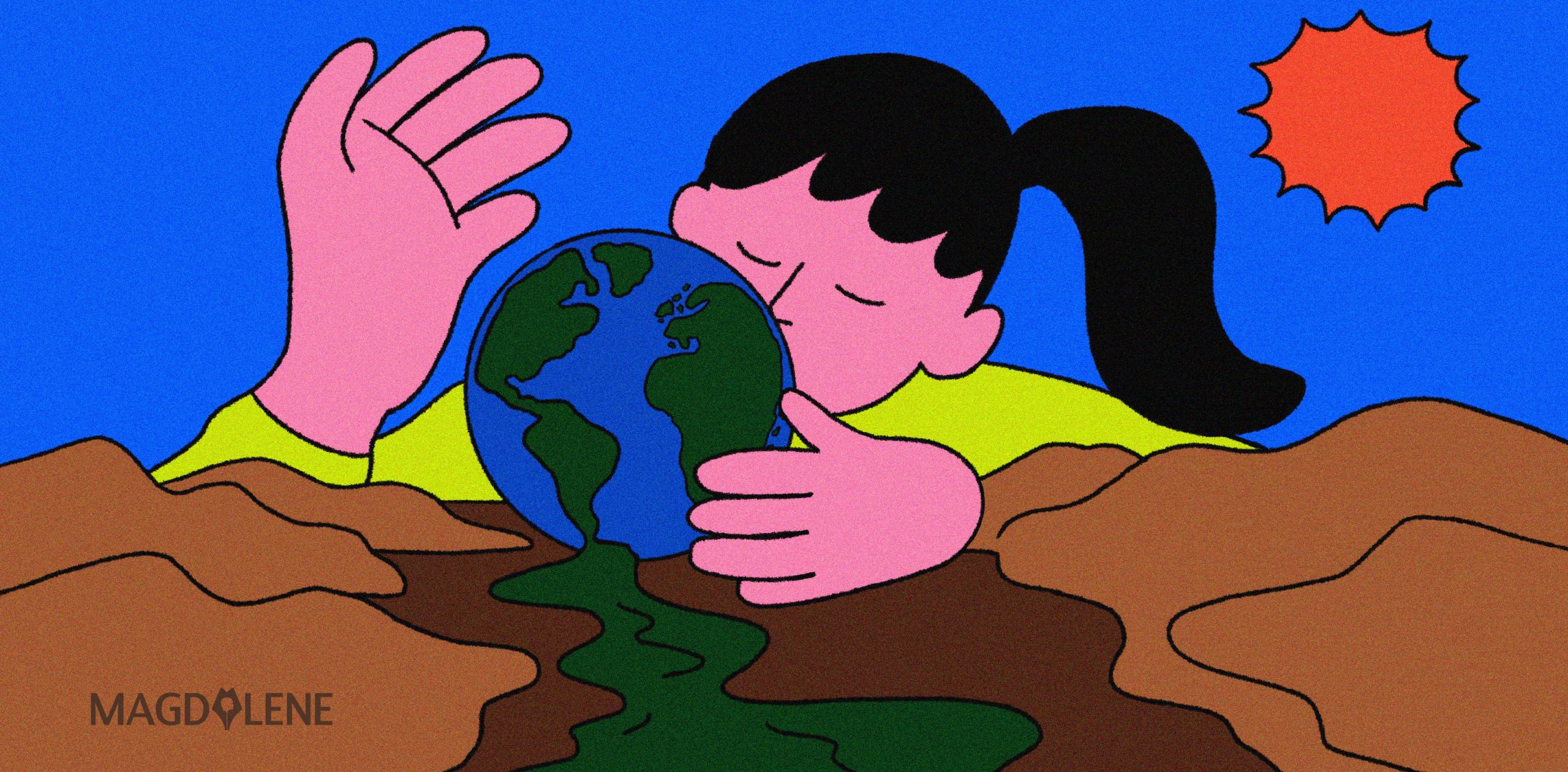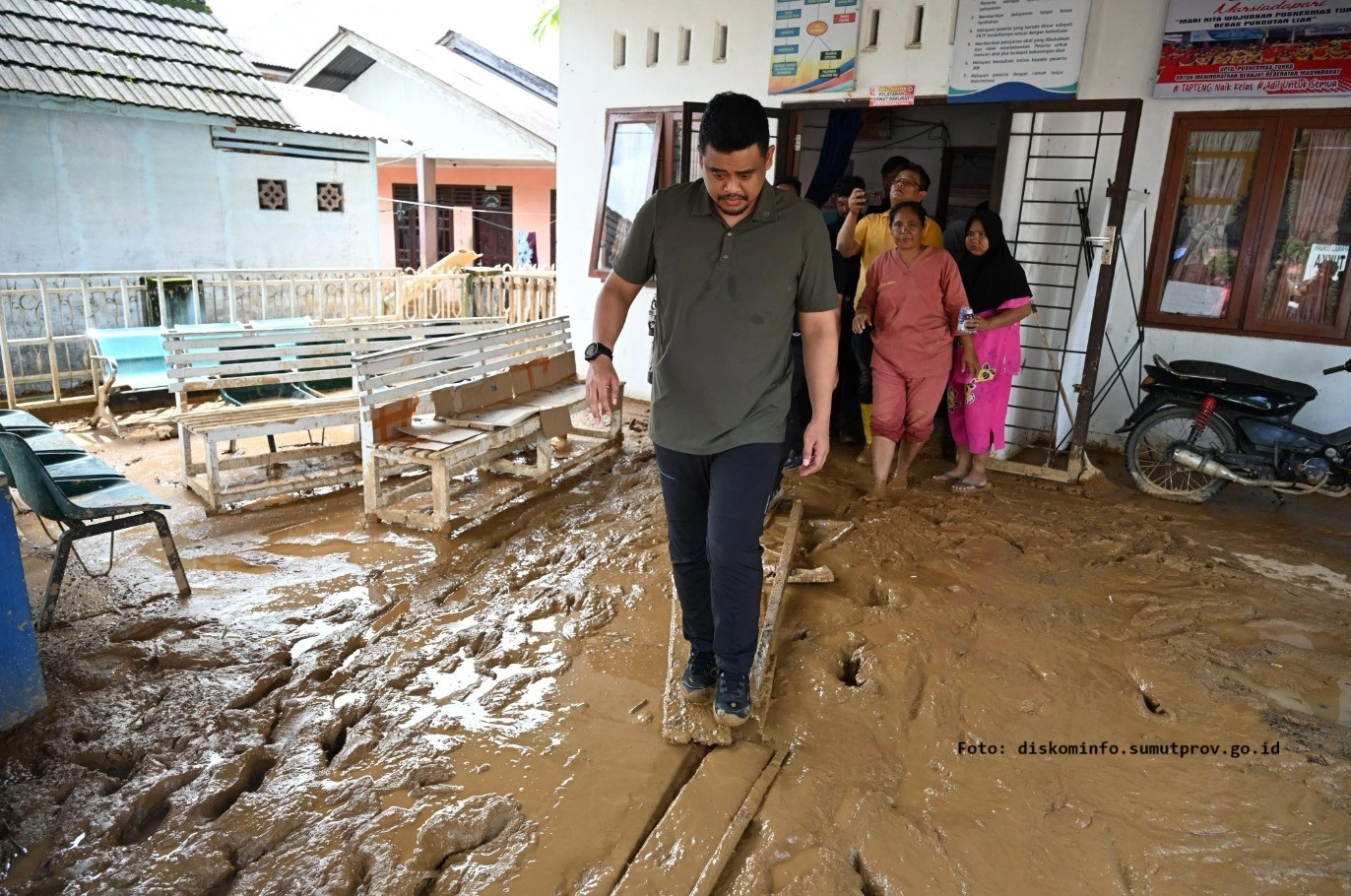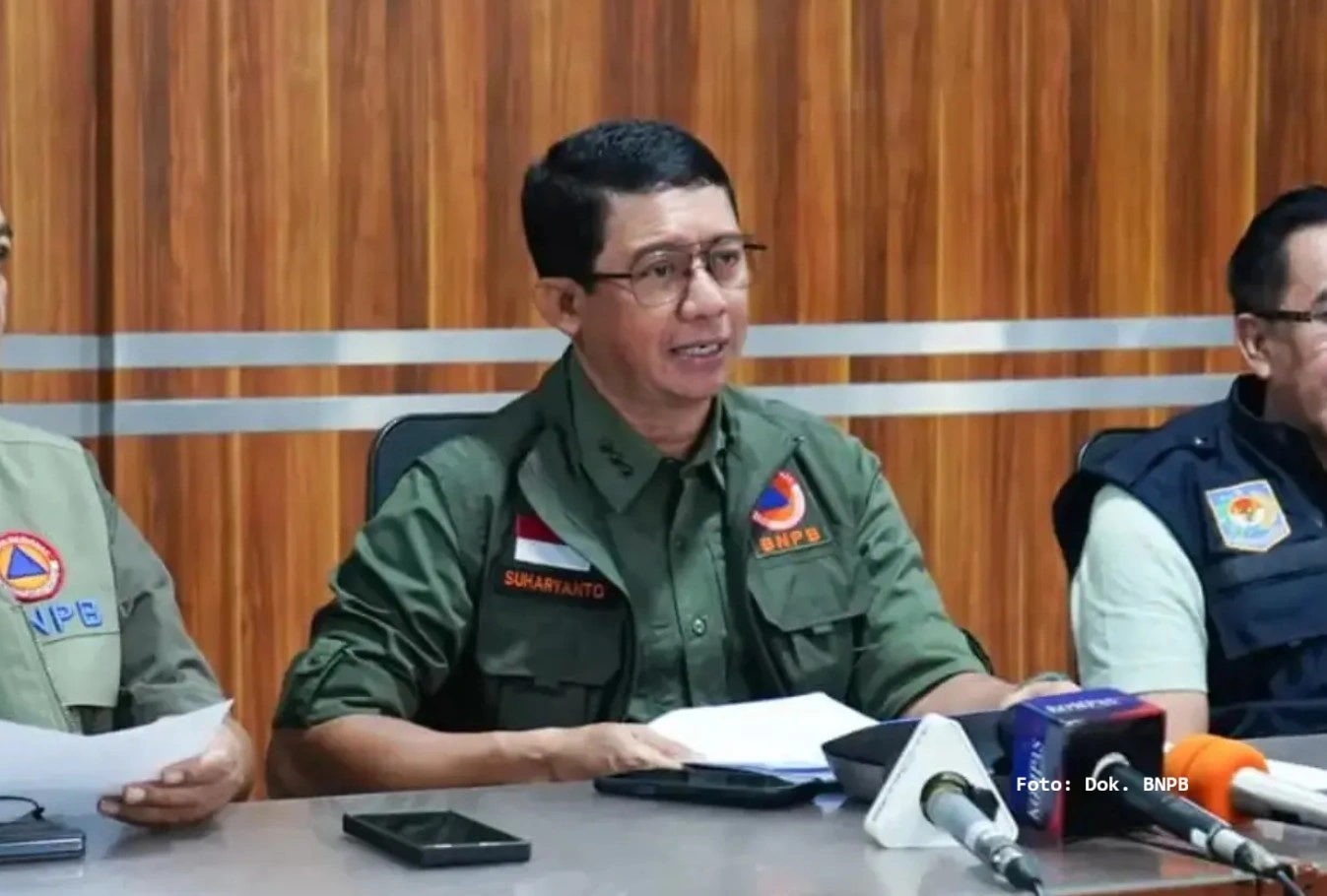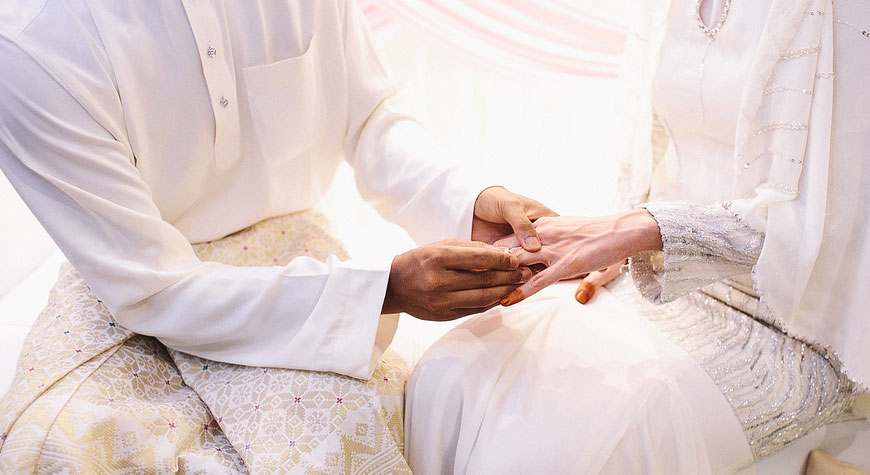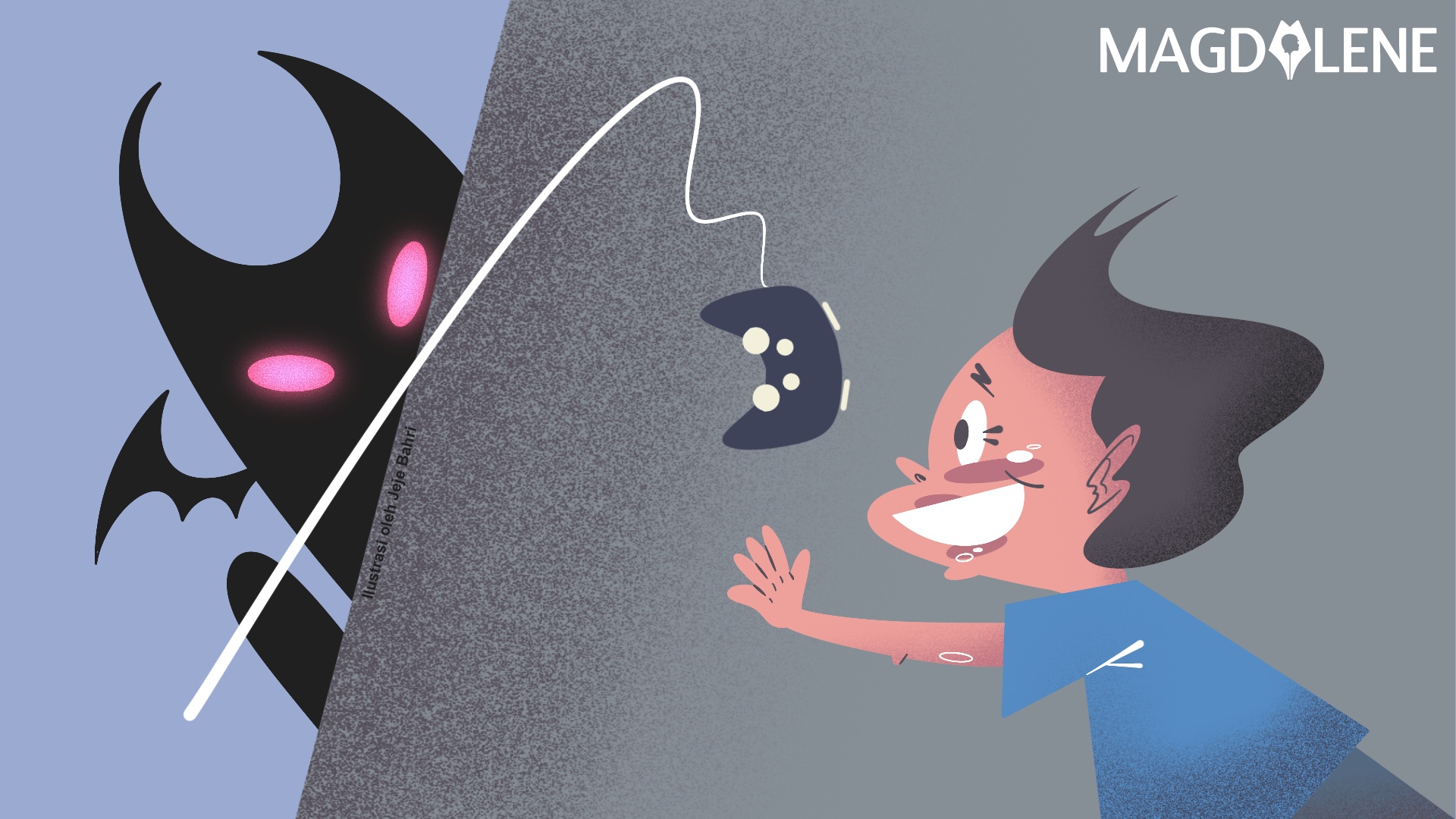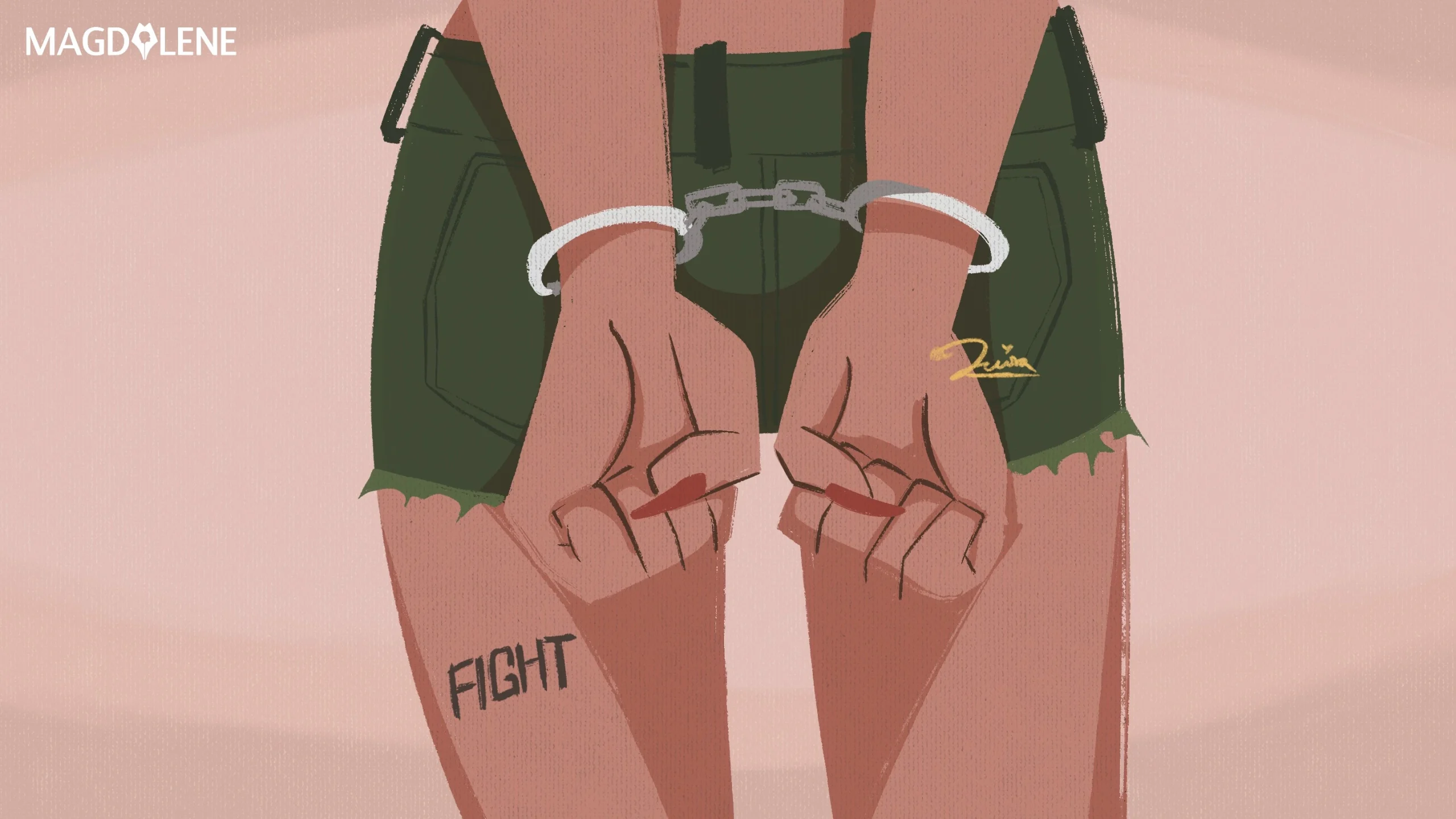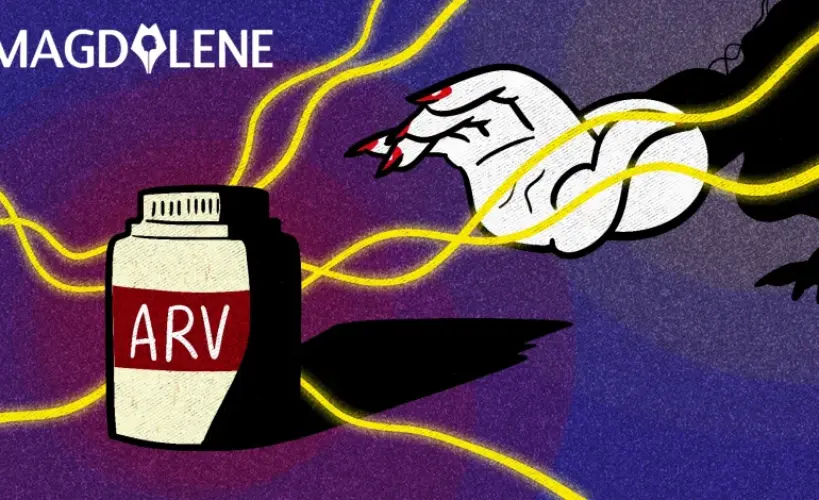What We Talk About When We Talk About Indonesia
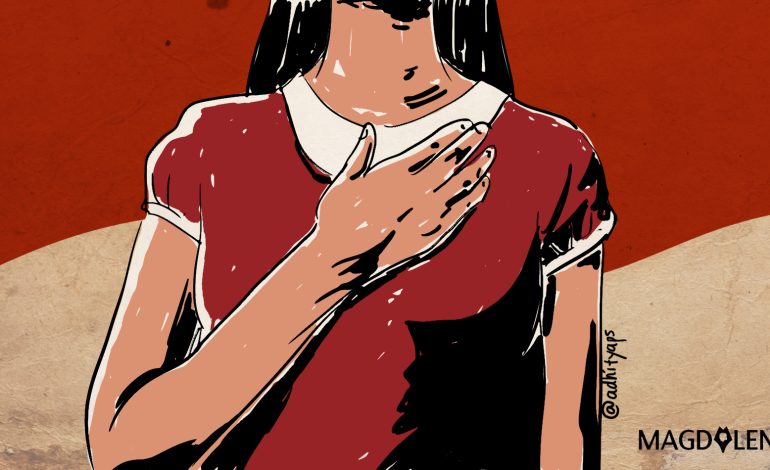
The Moment that Changed me (Devi says)
When you live thousands of miles away from your country, it becomes a distant version of itself. Right now, in my current and temporary residence in the United States, this is how I see Indonesia: remote, perplexing, consistent in its unpredictability. But this doesn’t mean that I have stopped believing in it.
Twenty-seven years ago I arrived in the US a fresh-faced 17-year-old, returning home only after finishing university seven years later to start a career in journalism. In the span of seven years, I had missed a lot of things, forever leaving a gap in my knowledge of 90’s-Indonesia, like which songs were hits among Indonesians (who’s this Tommy Page?), what the hair style-du-jour was, which murder stories were best remembered, and what political conspiracies most people subscribed to (because political stories disseminated by word of mouth had more credibility than the Information Ministry-approved news).
Save the few times I went home for holidays, the rare letters I wrote to (and received from) family and friends, and the even rarer long-distance phone calls, my ties to Indonesia were largely cut off during my years in the States. It’s not like today when you can follow the news on Indonesia or your friends wherever you are, thanks to the Internet and social media. Commercial Internet was still in its infancy then.
Once back in Jakarta, I was an awkward duckling, “too Americanized,” said my Australian friend. Even my sunbleached hair stood out (“I thought you were half bule,” a colleague said). I didn’t have that gentle, graceful and seemingly docile (or so I mistakenly thought) mannerism of many young Indonesian women I knew. I walked fast, laughed loudly, expressed my opinions too willingly, and wore clothes that showed too much arm, or armpit or leg. I couldn’t feign the courtesy chuckle expected of women when men (older men) told sexist jokes. Instead, I frowned and showed I was offended by the jokes. “Seksis” hadn’t even entered the vocabulary of many Indonesians then. This was 1996, mind you.
I took smoke breaks at the top of the staircase just outside of the newsroom along with other senior male reporters, prompting a colleague to quip: “You’re really brave, a new kid and a girl smoking here in the open.” She’d worked there for four years and had always smoked downstairs, where it was more “discreet” – she later joined me at the top of the stairs, though.
But I’m a quick learner and I’m quick to adapt to a new situation, courtesy of a nomadic childhood. I learned to curb my Americanism and neutralized my American accent. I picked up the local slang and colloquialism fast. I learned what not to say to people, and when to shut up (still learning to do this).
I didn’t instantly fall in love with Jakarta, but I quickly found my tribe in fellow journalists, that mixed bag of demi-intellectuals, rebels and outcasts. And, slowly, I grew to tolerate then like then love Jakarta. Slowly, I grew to identify myself as an Indonesian.
If there was one moment that articulated this feeling it was the Reformasi movement in 1998 and covering the historical event as a journalist. Before, I saw Indonesia as a mere country of birth, a place that launched me. Never one easily bought into shallow nationalism, my feelings about Indonesia were, at best, neutral. But on the morning of May 21, 1998, having followed the turmoil in the previous few days and watching then president Soeharto announce his resignation live on TV, I broke down and wept, feeling for the first time an aching but overwhelming love for Indonesia. I imagine it like a wife who finally learns that she loves her husband after twenty something years of arranged marriage.
This intense zeal didn’t last, of course. My love would, again and again, betray me. From corruption, poor leadership, bad policies, flirtation with authoritarianism and militarism, terrorism, religious fundamentalism, money politics, mob politics, incompetent bureaucrats, an unjust justice system, poverty, all these disappointments seem part and parcel of being Indonesian. The state of the nation is perpetually a roller coaster of hope and frustration – the latter more dominant than the former.
But I have stuck with it, not, I hope, like a hopeless wife in an unhappy marriage, too powerless or apathetic to change anything. I have stuck with it as a journalist, as a writer, in my development work, in my activism. Wherever I am, even here far from the madding crowd that is Jakarta, half a day behind at the other end of the globe, Indonesia features strongly in my mind.
To me it’s never about “right or wrong, our country”; rather it’s about righting the wrong of this country, and I’m happy to see many fellow Indonesians sharing this attitude and contribute in their own ways, though probably not enough (see my colleagues’ pieces below). It’s a lofty ambition, but the alternative is to not do anything, which would be a much greater tragedy.
Materialistic, Thy Name is Indonesians (Hera says)
Two days before Idul Fitri last month, we arrived at my mother in law’s house to find her alone, busy in the kitchen.
“Where’s everybody?” I asked, referring to my sister in law, her husband and their kids who lived in the same house.
“To the car dealership, they’re buying a new car,” she said chirpily.
My husband and I exchanged looks; he was visibly upset. When we retreated to the guest room, he blurted out, “What the hell? They can’t afford a car!”
Indeed they can’t. We know for a fact that both of them are still struggling with money. We know how much each of them earns and we still help to support them every month. There has been no sign of financial improvement in their household, but now they were buying a car?
It’s less about us feeling duped for “lending” them money from time to time than it is about seeing them having their priorities messed up. I like to shop, so far be it for me to get in the way of people wanting to indulge in something for escapism. I know what it’s like to grow up with little money, so it’s nice to finally have our own to buy stuff we like. But I’m talking about clothes or shoes or bags, not millions of rupiah worth of an automobile that you cannot afford.
It had happened before: they bought a car, and after less than a year, they couldn’t pay the installments so the dealership had to take the vehicle back. This time I have a feeling this won’t be any different, though I wish that I would be wrong.
Later on, my sister in law said that her father in law chipped in to buy that car. Still, shouldn’t that money be allocated for better use, like savings, or insurance, or paying credit cards debt? And they could’ve bought a cheap family car, but, no, they brought home a mid-range Japanese car instead.
The timing was predictably dubious. This was the time when families go back to their hometown, parade their wealth, regardless how they earn it, and are expected to shower their relatives with cash. Arriving at a family gathering in your own car, especially a brand new shiny one, sure makes a difference than having taxi or Uber driver dropped you off.
During the family gathering, after the usual annoying questions of when you’re getting married, when you’re having kids, when you’re having the second kid and why you gain weight, what follow usually are queries about material possessions.
“So, where is your office? Are you going there by car?” asked an uncle. I told him, no, because we didn’t have a car, which was met with raised eyebrow. Even as I explained that we didn’t like to drive in crazy Jakarta traffic and that buying a car meant having little to nothing left in our bank account to pay for other things we love like traveling, I was met with confused/pity look.
“Hey, still working for the Minister of Trade?” asked a cousin, referring to my previous job years back, the only job of mine that he remembered and cared to ask.
The conversation then shifted to the favorite of the elderlies’, my father included, the family’s rags-to-riches story of another cousin, a government official who is so loaded. Everybody respected him and kissed his ass. Nobody questioned how he could get so damn wealthy that he could buy my parents’ house for nearly Rp 2 billion in cash.
From time to time we receive news about the very wealthy cousin from my father, who beamed with pride and could not disguise the “why can’t my own children be rich like that” expression on his face. My sister and I could only grit our teeth and wish, not so secretly, that he would be investigated by the Corruption Eradication Commission (KPK).
Bored with the banality of the conversation during the family gathering, I turned into my phone to find my best friend since high school sending a photo montage taken from a chat group of our high school friends (which I refused to join due to the same level of banality, but that’s for another article).
Our friends apparently had a mini reunion and each of the girls posed for a photo next to a city mayor who happens to graduate from the same class as us. She comes from a political dynasty whose members hold so many public positions possible, and her husband and sister in law are currently in jail for amassing wealth. I was baffled and annoyed. Why are my friends so eager to pose for a photo with her? Do they think she is the definition of success? Because she certainly did not obtain the position through merit. Did they think she was an innocent victim and was oblivious to the financial scandals her family was embroiled in?
This is one of the factors why corruption persists. Instead of giving social sanction to shame corruptors and deter people from abusing their power and embezzling money, we put the perpetrators on a pedestal. Instead of teaching children frugality and honesty, we teach them that the definition of success is measured by wealth and we push them to give back to their parents by being “somebody” with a lot of money. Instead of fighting the feudalistic and materialistic culture of our parents’ generation, we, the young people conform to the norm.
We look up to the developed countries and want so much to emulate them, but only on a superficial level. Unless we learn to absorb the values of egalitarianism, humility and social justice, we will still be stuck in a rut.
A Nation of False Diversity (Ayunda says)
Back where I was raised before I moved to the city part of Malang, August 17th was always a grand and highly-anticipated celebration. Schools and communities showcased marching bands, traditional dance performance, and a parade of costumes in a street procession that would go on for six hours.
I was six when I wore a tassel green costume and a matching green headband with bird feathers. It was supposed to be Papuan’s traditional outfit. Some of my peers were wearing various traditional wedding attire, boys and girls sitting in pairs in pedicabs, instead of walking, smiling like real bride and groom.
That was probably the first time I was introduced to the concept of diversity: Indonesia consisting of people wearing different-looking traditional clothes, living in different places.
In elementary school, I joined the traditional dancing group for August 17th. We dressed up like the Madurese and did the Madurese dance for over 10 kilometers distance wearing bangkiak (result in, my feet covered in layers of Hansaplas). Not only did I learn the dance routine, I also memorized the song (though I was never told what’s the meaning).
That was probably my second exposure to diversity: People in Indonesia learn each other’s dance and songs.
But is this what “celebrating diversity” all about in Indonesia? Wearing traditional wedding costume, performing traditional dancing, singing traditional songs? Is “unity in diversity” merely about knowing what our fellow Indonesians wear or dance or sing?
Earlier this year, when I was in my hometown, my extended family were planning to go to the beach. Believe it or not, I’m the only female in the extended family of 28 members who doesn’t wear a headscarf on a daily basis. All of my aunts and younger cousins (I’m the oldest grandchild) wear headscarves (some of them forced by their fathers).
As I was preparing my clothes for the beach, my mom came to the room to find out what I was going to wear at the beach.
Of course, she knew already that I was going to wear shorts, so she said, “Don’t you dare wear that! All of our relatives are fully covered. Wear these trousers!”
I wore the trousers and wasn’t able to swim because the material was too thick and all the sands got in, making my legs look like twin pillows.
Another occasion, last holiday my mom and I were planning to have matching clothes to attend my father’s upcoming seminar. She said, “Dad wants you to wear headscarf during the seminar.” She knew I wasn’t going to like it.
“Why?” I asked.
“Well, he said that most of the women in the university wear headscarves, although it’s not an Islamic university.“
“So what?”
“Well, let’s just think of it simply as a polite clothing,” she tried to convince me.
“I am going to wear a long batik skirt and long sleeves kutubaru, THAT is not polite enough?”
She didn’t answer, but she bought me a headscarf anyways.
That is probably how different I am with my mother’s generation. She subscribes to the notion of community and belonging, always eager to adjust in order to fit in, while I don’t. I believe everybody is different by default, and it’s great that people preserve their sense of self, identity and individuality. And most of all, I believe that I don’t have to fit in all the time, everywhere.
I also realized that I knew nothing when I was a little kid, wearing the Papuan costume for the Independence Day Parade.
Back in the 70s the government initiated anti-koteka operation. They handed over shirts and trousers that ended up giving Papuans skin disease, because they weren’t accustomed to washing clothes regularly. Back in 2008, Susilo Bambang Yudhoyono also ratified the anti-pornography bill that has huge impacts on the culture of traditional clothing in Indonesia, including koteka and bare-breasted clothing of tribal women.
And despite what the TV shows want us to believe, that we all live in harmony the same way we dance in harmony on the same stage, in reality, even after 71 Independence Day celebrations, we have not truly learned to protect our minority and vulnerable populations. We have not truly learned how to be diverse.
Diversity isn’t just about knowing what people wear, how they look like, where they come from. Diversity is about respecting their beliefs, their traditions and their values. “Unity in diversity” isn’t about making different people dress the same way, think the same way, pray the same way. It’s about having the attitude to accept and respect differences, the willingness to have a dialogue and understand each others’ needs.
Being an Indonesian may mean being forced into boxes – which ethnicity you are, which of the six official religions you belong to, whether you are a “male” or “female”. Those who are believers of traditional beliefs are infidels and thus deserve no protection from the state. Those who identify themselves as neither a male nor female, and call themselves bissu, calalai, or waria, deserve no place in the society. And, those who don’t believe in heteronormativity are serious threats to the nation.
If you’re not privileged enough, being an Indonesian often means being unable to be your true self, because the intolerant majority has the habit of forcing their values and beliefs on others, even not seldom using force and violence.
But changes aren’t impossible if we want it hard enough.
Read Devi and Hera’s story about life as an editor.
Devi Asmarani, Hera Diani and Ayunda Nurvitasari are the people behind Magdalene. They happily balance Magdalene’s work with their day job/school loads.



